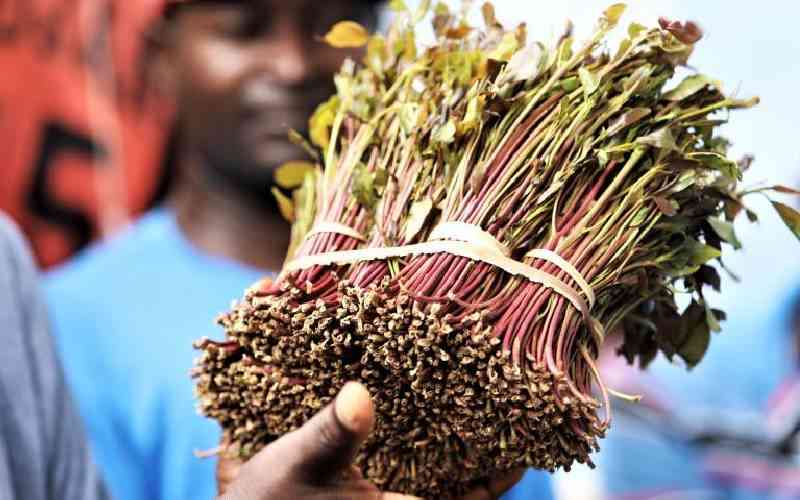×
The Standard e-Paper
Smart Minds Choose Us

Disillusioned for the last 10 years after the loss of the UK and Somalia markets, Miraa farmers from Meru are now looking towards the Middle East.
The farmers who raked billions of shillings from the UK and Somalia, the two biggest markets for the stimulant crop, were shocked when the UK banned it after its Government classified it as a Class C drug in 2014.